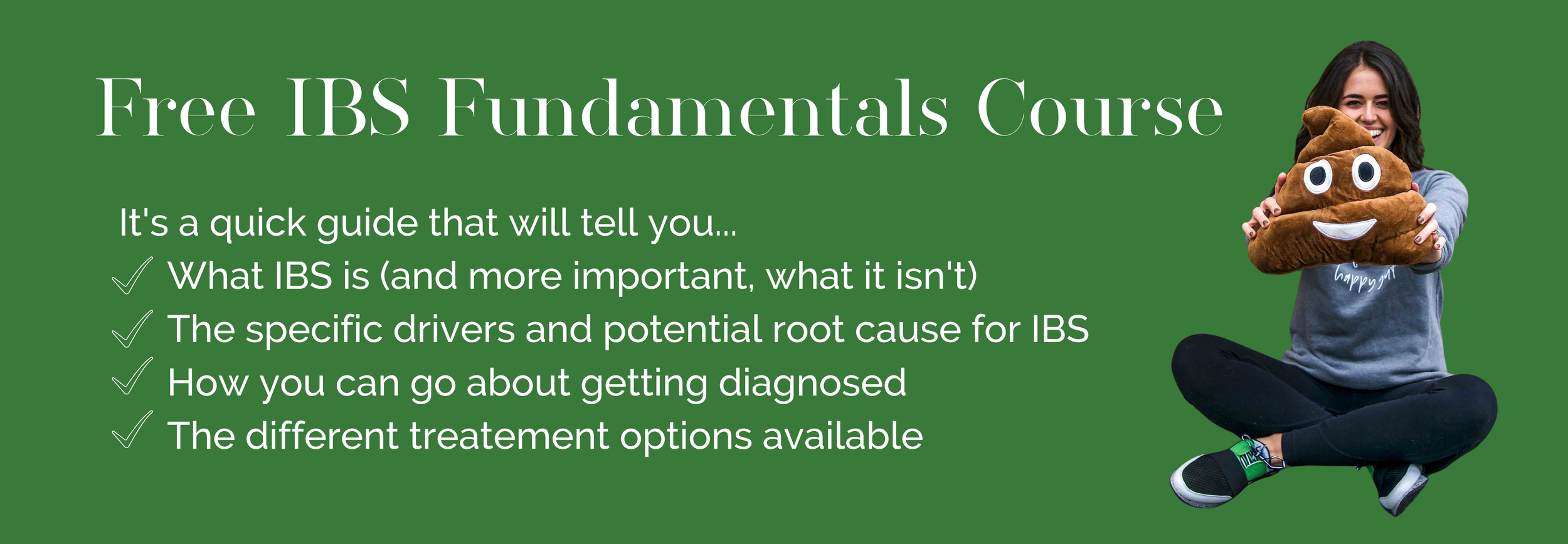Why Are My IBS Symptoms Changing?
Irritable bowel syndrome, known as IBS, is a functional gut-brain disorder that impacts the function of the gut, leading to chronic gastrointestinal (GI) symptoms, including constipation and/or diarrhea. Since IBS is a functional disorder, there’s not a single test that is used to diagnose it. Instead, it is diagnosed based on symptoms, according to the Rome IV criteria, after ruling out other conditions that can be tested for, including inflammatory bowel disease (IBD), celiac, infections, and cancer.
Since there’s not a test that can immediately identify IBS, it can take months, and sometimes years, to do the testing to rule out other conditions and land on the diagnosis. It can also take time for someone to start the conversation about their symptoms with their doctor because they may not know that what they experience is abnormal. Think about it… when was the last time you were hanging out with your friends and discussed pooping habits? For most, the answer is never. We tend to joke about GI symptoms with others, but usually don’t have detailed conversations about what’s going on in the bathroom beyond the jokes.
The typical story of someone with IBS is that they’ve had symptoms for most of their life, which may be described like “I’ve always had a sensitive stomach,” “I remember I would have diarrhea and get sick when I was nervous,” or “I seemed to always be a little constipated as a kid.” They could recall symptoms during their life, but the symptoms were never bad enough to talk to a doctor about it. Or maybe they did bring it up at some point and found a solution that worked well enough, like using a fiber supplement, incorporating a laxative, limiting dairy, etc.
The moment that typically sends someone with IBS to the doctor is a drastic change in the symptoms that were deemed “normal.” This could be the presence of severe pain that seemed to come out of nowhere. It could also be a drastic shift in bowel movement patterns or consistency, which could present as a week of diarrhea and loose stools when constipation was the norm. These drastic shifts in symptoms can leave one panicked and confused, which may be the push to the doctor in order to figure out what’s wrong.
In my experience working with individuals living with IBS, the shift in symptoms can lead to confusion, frustration, and doubt in their diagnosis. What I hear most often is “there must be something wrong because this isn’t normal for me.” They think that the change means something else is happening, so they try to find more testing and question everything they were previously told. This cycle of change can happen once for someone, or it could continue for many years.
There are a few reasons for the drastic change in symptoms one with IBS may be experiencing, including strategies used to treat with symptoms, changes in the microbiome, changes in stress, and an unidentified symptom pattern. Let’s break these down.
Strategies used to treat with symptoms
There is currently no cure for IBS, so treatment options are tailored to the symptoms that each individual is experiencing. Many times, the doctor who diagnoses the problem may recommend a medication, a supplement (like a laxative), or a dietary change (usually low FODMAP). With most medications and supplements that are recommended, the goal is the stop the main symptom. For example, an anti-diarrheal medication may be used for diarrhea, which will help slow the gut down. Or, a medication that pulls water into the gut may be used for constipation, in order to clear things out. The best case scenario is that the treatment solves the main issue and brings the gut to a happy medium, where the individual is now having well-formed, consistent bowel movements.
This is not always the result. Many times, the treatment used to solve one problem can actually trigger the opposite problem. Also, many medications and supplements have side effects that can cause new problems, like cramping and bloat. The same can be true of broad diet recommendations, in the absence of guidance from a registered dietitian. I see this most often with low FODMAP diet recommendations.
What’s your poop personality? Find out here!
Changes in the microbiome
One of the underlying causes that has been identified with IBS is a change in the makeup of bacteria housed in the colon, referred to as the microbiome. We call this change “dysbiosis,” and will often times refer to it as an ideal environment of bacteria. This may mean less diversity of strains, less quantity, or simply an abrupt change.
The bacteria in the microbiome play a role in digestion, nutrient absorption, immunity, hormone balance, mood, among many other processes throughout the body. When there is a change in this ecosystem, the systems of the body can start to dysfunction. Sometimes, this is short term and the body bounces back. Other times, this shift can last long term, which is what we see with IBS.
Some factors that can change the microbiome in a negative way include antibiotic use, bacterial infections (especially ones that lead to severe diarrhea), chronic stress, eating disorders and restrictive eating, certain medications and treatments, and poor dietary fiber intake.
When you have IBS, drastic changes in your microbiome can impact your symptoms. This can happen in both directions, where symptoms change or get worse with some of these negative impacts, and where symptoms improve with positive impacts. This is what why it’s important to focus on microbiome health as part of your IBS management plan.
Changes in stress
Stress is one of the biggest IBS triggers, and is often times missed as a focus point in treatment plans. With IBS, this creates a stress-symptom cycle, where stress can trigger symptoms and symptoms can trigger more stress. This cycle is a common complaint of those living with IBS and can be difficult to get out of without the proper resources.
In times of increased stress, whether that be a big life change or a loss of some kind, symptoms can drastically change. For most with IBS these moments of stress tend to the trigger that sends them to the doctor.
Unidentified symptom pattern
The last reason I want to highlight that can explain a change in symptoms is an unidentified symptom pattern. When something is going on in the body, it’s easy to focus on the thing that is most wrong. For example, if you have diarrhea that keeps you in the bathroom for hours, it may seem like that is happening every day because the 3 days each week it does happen are so severe that it is all you may focus on. What may be missed when you focus on the most severe symptom is what is going on in your body between the symptom flares.
The example I see the most often in my practice is someone believes they have IBS-D (diarrhea predominant), because that’s what they noticed the most at the start of their IBS journey. The diarrhea is present a few days each week and is very severe. In time, the diarrhea seems to only be happening 1-2 days per week, and they start to notice more bloat, gas, and pain between those cycles. Turns out, they have significant constipation going on between the bouts of diarrhea. So, instead of just “treating” the diarrhea, we can address the constipation and stop the cycle.
This is the very reason you want clear guidance from a professional you trust in order to create a plan that works best for you! If you want to talk through what this would look like from our services, you can schedule a complimentary consult call here.
Are you frustrated with your IBS symptoms? Do you desire to be confident in your food choices? Do you want to have a healthier relationship with your body and diet? Are you ready to take control of your IBS?



